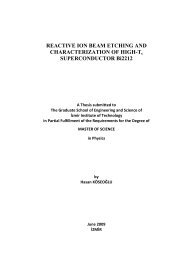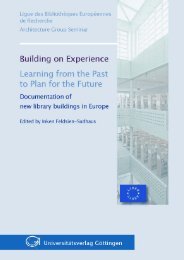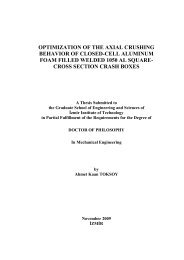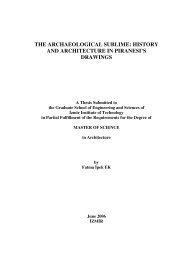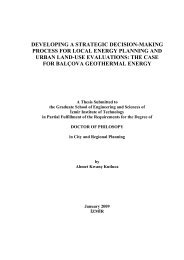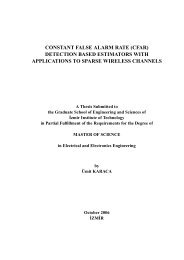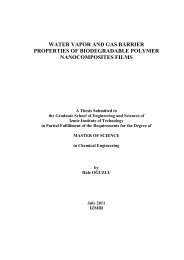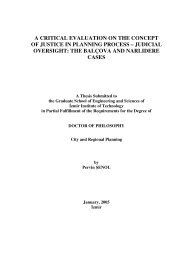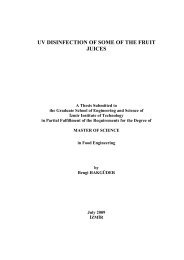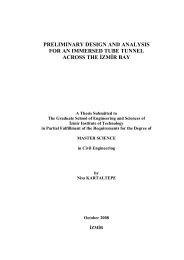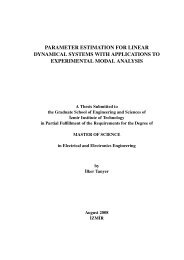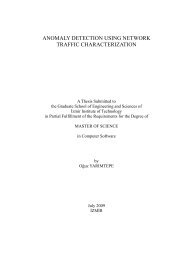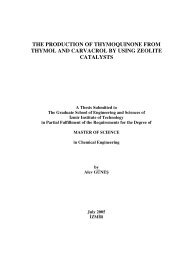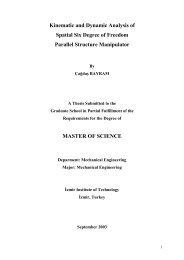energy performance analysis of adnan menderes international airport
energy performance analysis of adnan menderes international airport
energy performance analysis of adnan menderes international airport
You also want an ePaper? Increase the reach of your titles
YUMPU automatically turns print PDFs into web optimized ePapers that Google loves.
The amount <strong>of</strong> <strong>energy</strong> actually consumed or estimated to meet the different needs associated<br />
with a standardised use <strong>of</strong> the building, which may include, inter alia, heating, hot water heating,<br />
cooling, ventilation and lighting. This amount shall be reflected in one or more numeric<br />
indicators which have been calculated, taking into account insulation, technical and installation<br />
characteristics, design and positioning in relation to climatic aspects, solar exposure and<br />
influence <strong>of</strong> neighbouring structures, own-<strong>energy</strong> generation and other factors, including indoor<br />
climate, that influence the <strong>energy</strong> demand (EPBD 2002).<br />
Turkey participates in both Climate Change and Kyoto Protocol. In July 2008,<br />
Turkey signed Kyoto Protocol and committed to reduce greenhouse gas emissions by<br />
10% compared to 1998 (Kyoto Protocol 1997). Turkish thermal insulation standard (TS<br />
825) has been in effect since 1999, althought it was published firstly in 1970. TS 825<br />
was revised according to Turkey's conditions in 2008.<br />
Turkey is revising its legislations on building <strong>energy</strong> <strong>performance</strong> as foreseen in<br />
2002/92/EC, European Union Directive on the Energy Performance <strong>of</strong> Buildings,<br />
through the European Union accession process. TS 825 (2008), “Thermal insulation<br />
requirements for buildings” which came into force at 2000, is revised in 2008. In 2007<br />
“Energy Efficiency Law” and “Energy Performance <strong>of</strong> Building Regulation” in 2008<br />
provide accelaration for studies on a methodology for <strong>energy</strong> <strong>performance</strong> evaluation <strong>of</strong><br />
the buildings. “Energy Performance <strong>of</strong> Buildings Regulation” for a calculation<br />
procedure including heating, cooling, domestic hot water production and lighting<br />
<strong>energy</strong> consumptions and CO2 emissions have been just completed in December 2009.<br />
There will be a need to improve limitation <strong>of</strong> <strong>energy</strong> consumption values because <strong>of</strong><br />
these standarts and the studies related to <strong>energy</strong> <strong>performance</strong> development.<br />
Energy efficiency potential <strong>of</strong> Turkey is defined as up to 30% in buildings, 20%<br />
in industry and 15% in transportation sectors by WEC (World Energy Council),<br />
predicting 4 billion TL <strong>energy</strong> saving. Industry, building and service sectors are<br />
accepted as primary sectors in <strong>energy</strong> efficiency studies because <strong>of</strong> their highest<br />
proportion on total consumption and high potential <strong>energy</strong> saving. Imported expenditure<br />
<strong>of</strong> oil and natural gas in our country will show a 1.4 billion USD-decrease under<br />
condition <strong>of</strong> 35% saving in heating and cooling <strong>of</strong> buildings and a 15% saving in<br />
transportation is obtained. For commercial buildings, space cooling and heating are<br />
needed throughout the year, and electricity use in the commercial buildings, accounts<br />
for about one-third <strong>of</strong> the total <strong>energy</strong> consumption in Turkey. For this reason, reducing<br />
<strong>energy</strong> usage for space cooling and heating in buildings is inevitable for <strong>energy</strong><br />
conservation and environmental protection in Turkey (WECTNC 2005-2006).<br />
3



